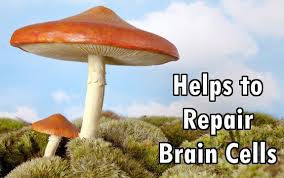
Breaking News
 Windows 11 QEMU/KVM Installation Guide in Linux Including TPM and Secure Boot
Windows 11 QEMU/KVM Installation Guide in Linux Including TPM and Secure Boot
 Silver: US Mint-Delays and Costco Limits Surface
Silver: US Mint-Delays and Costco Limits Surface
 Boots on the Ground...The news is getting worse so keep prepping.
Boots on the Ground...The news is getting worse so keep prepping.
 O'Keefe Media Group: Secret Service Agent Assigned to Vance Leaks Sensitive Information
O'Keefe Media Group: Secret Service Agent Assigned to Vance Leaks Sensitive Information
Top Tech News
 Superheat Unveils the H1: A Revolutionary Bitcoin-Mining Water Heater at CES 2026
Superheat Unveils the H1: A Revolutionary Bitcoin-Mining Water Heater at CES 2026
 World's most powerful hypergravity machine is 1,900X stronger than Earth
World's most powerful hypergravity machine is 1,900X stronger than Earth
 New battery idea gets lots of power out of unusual sulfur chemistry
New battery idea gets lots of power out of unusual sulfur chemistry
 Anti-Aging Drug Regrows Knee Cartilage in Major Breakthrough That Could End Knee Replacements
Anti-Aging Drug Regrows Knee Cartilage in Major Breakthrough That Could End Knee Replacements
 Scientists say recent advances in Quantum Entanglement...
Scientists say recent advances in Quantum Entanglement...
 Solid-State Batteries Are In 'Trailblazer' Mode. What's Holding Them Up?
Solid-State Batteries Are In 'Trailblazer' Mode. What's Holding Them Up?
 US Farmers Began Using Chemical Fertilizer After WW2. Comfrey Is a Natural Super Fertilizer
US Farmers Began Using Chemical Fertilizer After WW2. Comfrey Is a Natural Super Fertilizer
 Kawasaki's four-legged robot-horse vehicle is going into production
Kawasaki's four-legged robot-horse vehicle is going into production
 The First Production All-Solid-State Battery Is Here, And It Promises 5-Minute Charging
The First Production All-Solid-State Battery Is Here, And It Promises 5-Minute Charging
LSD and magic mushrooms could heal damaged brain cells...

Psychedelic drugs like LSD and ecstasy ingredient MDMA have been shown to stimulate the growth of new branches and connections between brain cells which could help address conditions like depression and addiction.
Researchers in California have demonstrated these substances, banned as illicit drugs in many countries, are capable of rewiring parts of the brain in a way that lasts well beyond the drugs' effects.
This means psychedelics could be the "next generation" of treatments for mental health disorders which could be more effective and safer than existing options, the study's authors from the University of California.

 Storage doesn't get much cheaper than this
Storage doesn't get much cheaper than this

